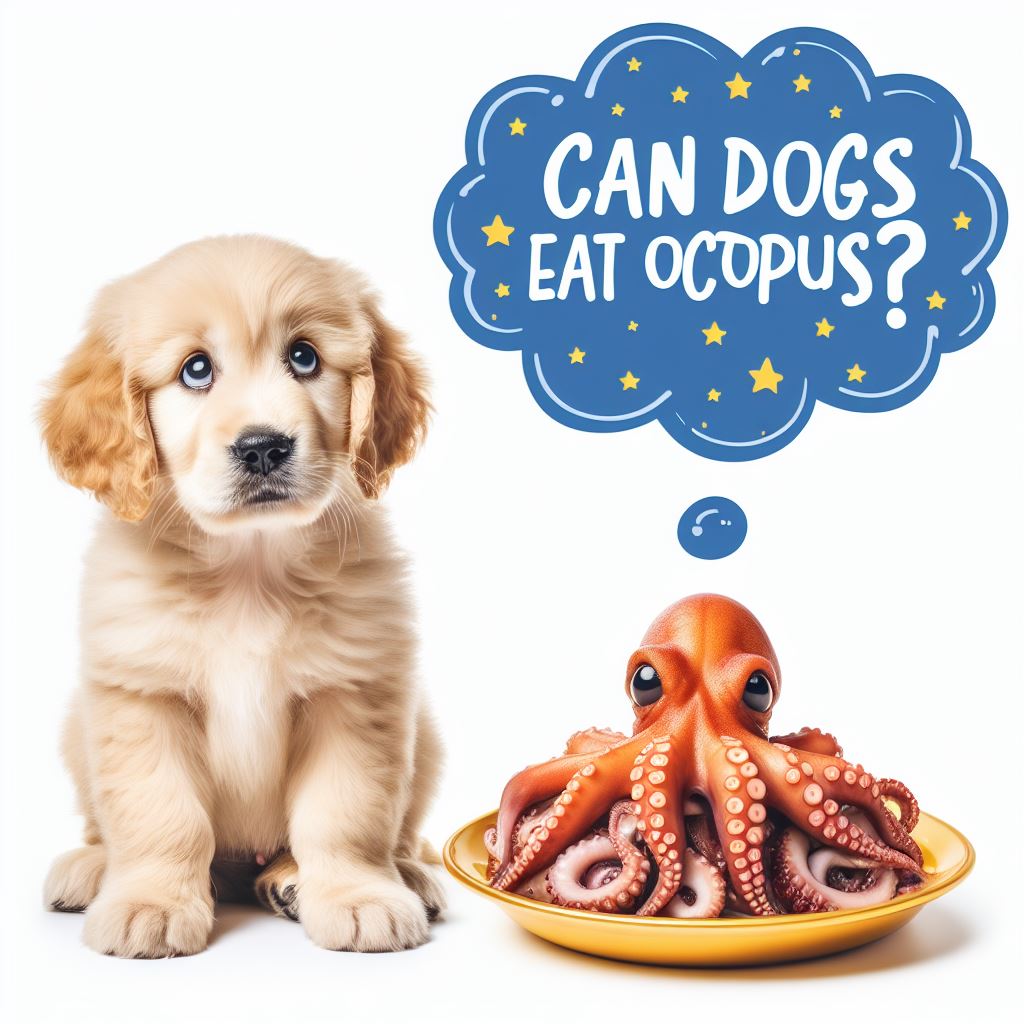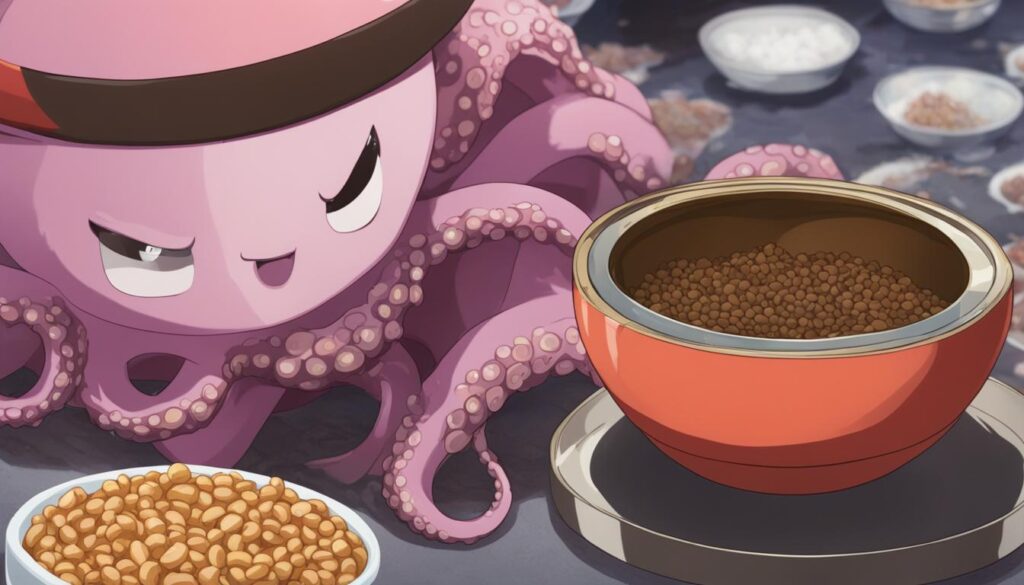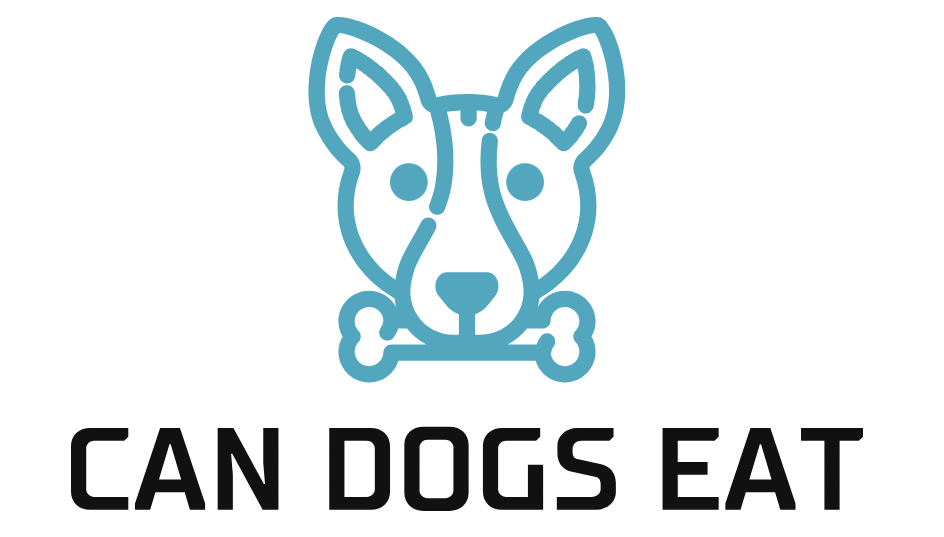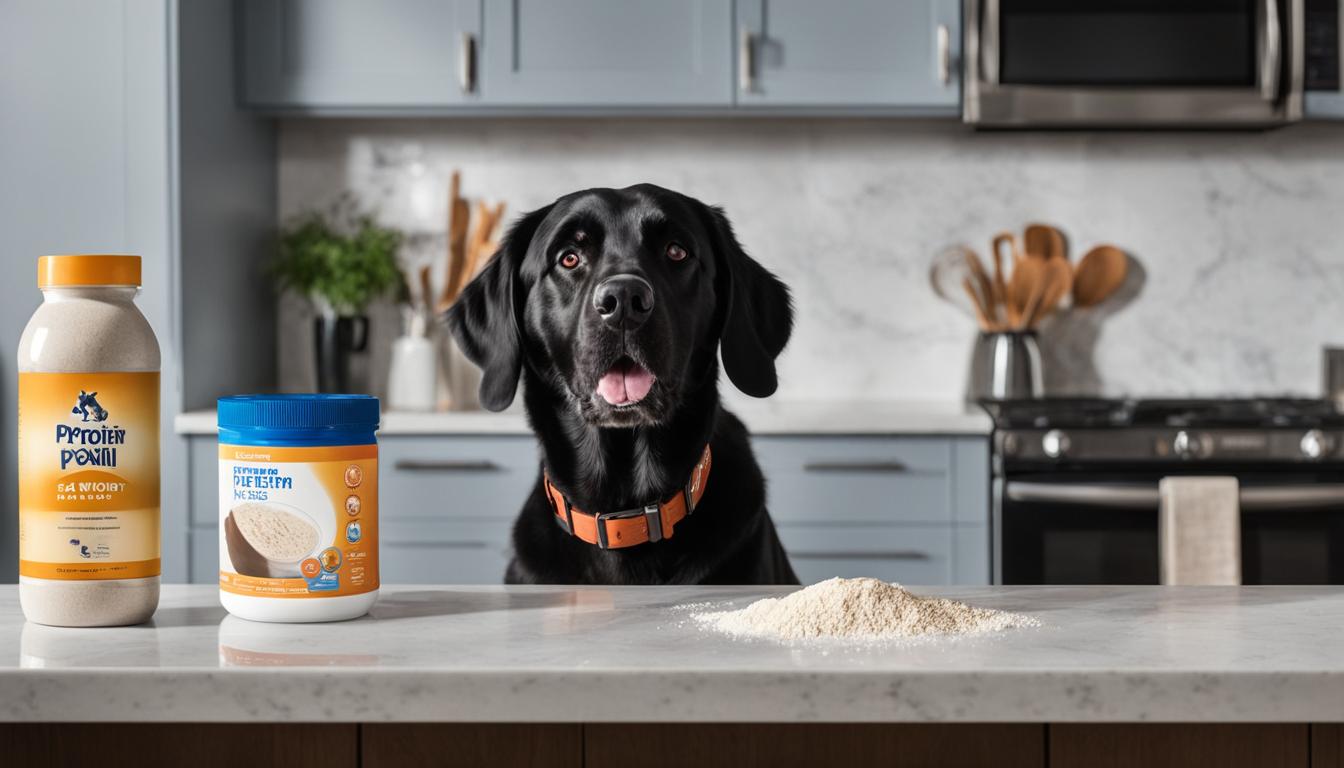Can Dogs Eat Octopus?
As a dog owner, you may have wondered whether it’s safe to feed octopus to your furry friend. While octopus can provide some nutritional benefits, it’s important to understand the dos and don’ts of including it in your dog’s diet.

Octopus is a seafood that contains essential nutrients such as fatty acids and vitamin B12, which can benefit your dog’s health. However, there are important considerations to keep in mind to ensure your dog’s safety and well-being.
Let’s dive deeper into the topic and explore the factors you should consider when feeding your dog octopus.
Key Takeaways:
- Octopus can be fed to dogs if it is cooked, unseasoned, and given in small amounts.
- Feeding raw octopus is not recommended, as it can cause digestive issues.
- Canned or dried octopus may contain harmful preservatives, so it’s best to opt for fresh cooked octopus.
- Octopus contains important nutrients like fatty acids and vitamin B12, which can benefit your dog’s health.
- While octopus can be included in your dog’s diet, it should not be the sole source of nutrition.
Health Benefits of Octopus for Dogs
Octopus offers several health benefits for dogs, making it a nutritious addition to their diet. Here are some of the key advantages:
- Healthy Fats: Octopus is rich in healthy fats, including omega-3 fatty acids. These fats can promote a shiny coat, boost the immune system, and support proper digestion in dogs.
- Vitamin B12: Octopus is a great source of vitamin B12, which plays a crucial role in red blood cell development and digestion. This vitamin is vital for a dog’s overall health and well-being.
- Minerals: Octopus contains important minerals such as copper, phosphorus, iron, and potassium. These minerals contribute to strong bones and muscles, improved energy levels, and better blood circulation in dogs.
- Protein: Octopus is an excellent source of protein, which is an essential nutrient for dogs. Protein supports muscle development, repairs tissues, and provides energy for their daily activities.

Comparative Table: Nutritional Content of Octopus
| Nutrient | Per 100g of Octopus |
|---|---|
| Protein | 25g |
| Fat | 1g |
| Omega-3 Fatty Acids | 284mg |
| Vitamin B12 | 30mcg |
| Copper | 0.4mg |
| Phosphorus | 230mg |
| Iron | 4.4mg |
| Potassium | 300mg |
As shown in the table, octopus is a nutrient-dense food that can provide various essential nutrients for dogs’ optimal health. However, it is important to remember that while octopus can be beneficial, it should be fed in moderation as part of a balanced diet. It should not be the sole source of nutrition for dogs, and it’s always best to consult with a veterinarian before introducing any new food into your pet’s diet.
Risks of Feeding Octopus to Dogs
When it comes to feeding octopus to dogs, there are certain risks that pet owners should be aware of.
One of the primary concerns is the potential for heavy metal contamination. Although octopus generally has lower mercury levels compared to other seafood, it can still contain harmful metals like lead, which can lead to gastrointestinal issues and nervous system problems in dogs. It is important to ensure that the octopus being fed to your dog is from a trusted source and has been properly inspected for contaminants.
Feeding raw octopus to dogs is also not recommended. Raw seafood, including octopus, may harbor pathogenic bacteria such as Salmonella or Vibrio, which can cause food borne illnesses in dogs.
These bacterial infections can lead to symptoms such as vomiting, diarrhea, and abdominal pain. Additionally, the tentacles of raw octopus can pose a choking hazard to dogs, especially those that are small or prone to gulping their food.
Another aspect to consider is the sodium levels in octopus. While sodium is necessary for dogs in appropriate quantities, excessive levels can be harmful. High sodium intake can lead to issues such as increased thirst, dehydration, vomiting, diarrhea, seizures, and even death. Therefore, it is important to feed octopus to dogs in moderation and ensure that their overall diet is well-balanced and meets their nutritional needs.

Table: Potential Risks of Feeding Octopus to Dogs
| Risk | Description |
|---|---|
| Heavy Metal Contamination | Octopus may contain metals like lead, which can lead to gastrointestinal issues and nervous system problems in dogs. |
| Raw Octopus | Feeding raw octopus can expose dogs to pathogenic bacteria and pose a choking hazard due to the tentacles. |
| High Sodium Levels | Excessive sodium intake can result in dehydration, vomiting, diarrhea, seizures, and other health issues in dogs. |
It is always recommended to consult with a veterinarian before introducing any new food into your dog’s diet, including octopus. They can provide personalized advice based on your dog’s specific health needs and dietary requirements. While octopus can be enjoyed as an occasional treat for dogs, it is important to prioritize their overall well-being and ensure that their diet is balanced and nutritionally complete.
Conclusion
In conclusion, it is safe for dogs to eat cooked octopus in moderation. While octopus provides some nutritional benefits, it is important to follow certain guidelines to ensure the wellbeing of your pet.
Feeding plain, cooked octopus in small pieces is the best way to introduce it to your dog’s diet. This reduces the risk of digestive issues and choking, ensuring that your dog can enjoy this seafood treat safely.
However, it is crucial to remember that octopus should not be the sole source of nutrition for dogs. It is always best to feed them a balanced diet that meets their specific needs. While octopus can be included as an occasional treat, there are also other healthy options available.
Consider incorporating blueberries, carrots, apples, cantaloupe, and celery into your dog’s diet as alternative treats. These options provide various nutrients and can complement a well-rounded meal plan for your furry friend.
FAQ
Can dogs eat raw octopus?
No, it is not recommended to feed dogs raw octopus due to the potential presence of pathogenic bacteria and choking hazards caused by the tentacles.
Is it safe to feed dogs cooked octopus?
Yes, dogs can safely eat cooked octopus as long as it is unseasoned and given in small amounts.
Can dogs eat canned or dried octopus?
It is best to avoid feeding dogs canned or dried octopus as these may contain harmful preservatives.
What are the health benefits of octopus for dogs?
Octopus is rich in healthy fats, including omega-3 fatty acids, which can promote a shiny coat, boost the immune system, and support digestion. It is also high in vitamin B12, which plays a crucial role in red blood cell development and digestion.
Octopus contains minerals such as copper, phosphorus, iron, and potassium, which contribute to strong bones and muscles, improved energy levels, and better blood circulation. Additionally, octopus is an excellent source of protein, an essential nutrient for dogs.
What are the risks of feeding octopus to dogs?
One of the primary concerns is heavy metal contamination. Although octopus has lower mercury levels compared to other seafood, it can still contain harmful metals like lead, which can lead to gastrointestinal issues and nervous system problems. Octopus also has high sodium levels, which can be harmful to dogs and may cause vomiting, diarrhea, seizures, and even death.
How should I feed octopus to my dog?
It is best to feed your dog plain, cooked octopus cut into small pieces to prevent choking. Feeding in moderation is important, and octopus should not be the sole source of nutrition for dogs. It is recommended to include it as part of a balanced diet formulated for their specific needs.
Are there other healthy treat options for dogs?
Yes, there are many other healthy treat options for dogs, such as blueberries, carrots, apples, cantaloupe, and celery, which provide various nutrients and can be included as part of a well-rounded diet.
Can dogs eat octopus?
Yes, dogs can eat octopus. However, there are certain considerations to keep in mind before feeding it to your furry friend.
Can dogs eat raw octopus?
Raw octopus should be avoided as it may contain harmful bacteria and parasites that can be harmful to your dog’s health. It is recommended to cook octopus before offering it to your dog.
Is octopus safe for dogs to eat as a treat?
Yes, octopus can be given to dogs as an occasional treat. Keep in mind that it should be offered in small amounts and as part of a balanced diet.
Is it beneficial for dogs to eat octopus?
Octopus can provide some nutritional benefits to dogs. It is a source of healthy fats, omega-3 fatty acids, and vitamin B12, which can support your dog’s overall health.



Leave a Reply